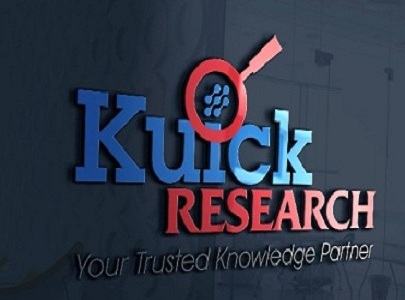
Global CD137 Antibodies Clinical Trials and Market Trends Insight 2023 Report Highlights:
The TNF superfamily, or the tumor necrosis factor superfamily, has garnered a lot of attention lately for the dual role displayed by its members in cancer. TNF can function as both cancer promoters and repressors, which is why the TNF family has gained consideration for its therapeutic promise in the recent years. Likewise, the receptors for these proteins have also been explored for their therapeutic potential, which has been addressed by preventing them from interacting with members of the TNF family. One of the tumor necrosis factor receptors, CD137, has recently attracted interest in the cancer therapeutics domain for its potential spanning several indications altogether. Many pharmaceutical companies are now working to develop antibodies that bind to CD137 that can be used in the treatment of different cancers.
CD137, also known as 4-1BB, was discovered in the late 1980s as a costimulatory protein found on activated CD8+ T cells and NK cells. Further, it was also discovered that the binding of the CD137 with its ligand CD137L enhanced immune response. Because of this important observation, a lot of efforts have been put in to stimulate the activities of the CD137 by developing agonistic antibodies for it. These antibodies have been mostly developed as monoclonal and bispecific antibodies; however, with the ongoing clinical development of trispecific and tetraspecific antibodies, these novel antibody formats have also been incorporated in the clinical pipelines for CD137 antibodies.
Utomilumab and Urelumab were among the first CD137 agonists to be developed and introduced in human clinical trials. They were developed by Bristol-Myers Squibb and Pfizer, both being prominent companies in the pharmaceutical industry, and the involvement of these two companies in the clinical development of CD137 antibodies was a major factor that triggered the entry of more pharmaceutical companies in the CD137 antibodies market. At present, many prominent companies are now developing agonistic antibodies for CD137, which has been beneficial in bringing attention to this novel drug class.
Currently, all candidates in the global clinical trials pipeline are in early phases of clinical evaluation, with the farthest candidates making it to the phase 2. Additionally, a majority of these have been developed for cancer indications, including both solid and hematological cancers. Genmab, Roche, Cullinan Oncology, Sichuan Baili Pharmaceutical, Systimmune and Eutilex are some prominent pharmaceutical companies with antibody assets designed to target and stimulate the CD137.
Sichuan Baili Pharmaceutical and its US-based subsidiary Systimmune, have pioneered the development and clinical evaluation of tetraspecific antibodies, which is evident from their pipelines. All of their tetraspecific antibodies engage the CD137 protein, along with CD3 and PD-L1, apart from a cancer antigen that binds to the fourth binding arm. GNC-03, which has been developed using the companies’ proprietary GNC platform, is the only tetraspecific antibody in clinical trials that targets the CD137, and is also the only tetraspecific antibody in phase II of clinical evaluation. It is being assessed for the treatment of leukemia and lymphoma.
Additionally, Pieris Pharmaceuticals has also created waves in the market of CD137 antibodies with its candidate cinrebafusp alfa (PRS-343). PRS-343 is a bispecific fusion protein that targets the CD137 along with the HER2 receptor. The protein acts as an agonist and antagonist for the two receptors respectively, making it one of a kind. It is being tested for patients with gastric cancer expressing HER2.
For the development of a more efficient cancer treatment regimen, many companies have come forward to form collaborations to carry out clinical trials and research activities to enable the development and evaluation of potential drug combinations. For instance, the recent clinical collaboration between Compass Therapeutics and Merck was aimed at this. Compass’ CD137 agonist CTX-471 is in phase 1b of clinical evaluation for the treatment of unspecific solid cancers as a monotherapy. However, its collaboration with Merck was focused on evaluating the combination of CTX-471 with the anti-PD-1 blockbuster Keytruda in patietns with metastatic or locally advanced non-small cell lung cancer. The trial dosed the first patient in December 2022 and is currently enrolling more patients.
The therapeutic potential of CD137 has been investigated exhaustively and has now been confirmed as studies from running clinical and research studies emerge. Many companies are now developing agonists against this receptor protein, and within the next five years, the first antibody binding the CD137 is anticipated to gain approval. The market is driven by many factors such as the increasing prevalence of cancer, increasing investment in the cancer therapeutics domain and the involvement of prominent companies. The segment is anticipated to thrive in the coming years as CD137 gains more popularity as a agonistic target.